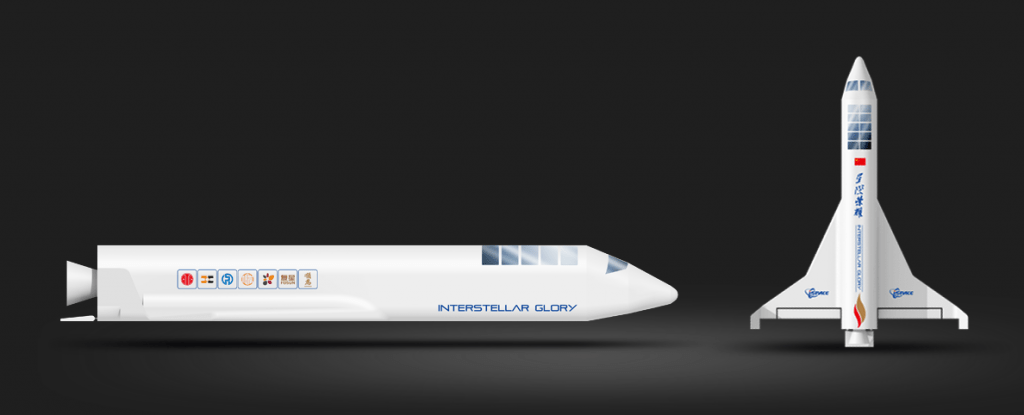A Chinese company is planning to launch a rocket with a reusable booster in 2021. The company is called i-Space, and the rocket is called Hyperbola-2. They've already developed and launched another rocket, called Hyperbola.
i-Space, not to be confused with the Japanese company ispace, showed Hyperbola-2 at the 2019 Zhongguancun Forum in Beijing. (Zhongguancun is a technology hub.) Hyperbola-2 will be China's first reusable rocket.
Hyperbola-2 is a liquid-propellant rocket using oxygen-methane. According to the company's VP of Technology, Dong Yanmin, the reusability will reduce the cost of the rocket by 70%. The rocket is 28 meters tall and can deliver 1.9 tonnes of payload to Low-Earth Orbit. Its takeoff weight is 90 tonnes.
Globally, there's a growing demand for small and medium satellite launches, and iSpace intends to serve that market.
i-Space launched their Hyperbola rocket on July 25th, 2019, from a launch facility in the Gobi desert. That rocket had a takeoff weight of 31 tons and can deliver up to 300 kgs of payload to a 500 km Sun-synchronous orbit.
No specific date has been give for the Hyperbola-2's launch, and its predecessor's launch was delayed several times, with no explanation.
i-Space say they intend to also develop a reusable sub-orbital space plane for tourism.
i-Space's reusable rocket is part of a growing trend in space technology. SpaceX pioneered reusable rockets with their Falcon 9 rocket. Blue Origin is close behind them with their New Shepard rocket. The United States' Space Shuttles were reusable space planes, but the boosters weren't reusable. The Spaceship Company, a sister company of Virgin Galactic has developed reusable sub-orbital space planes.
 Universe Today
Universe Today


